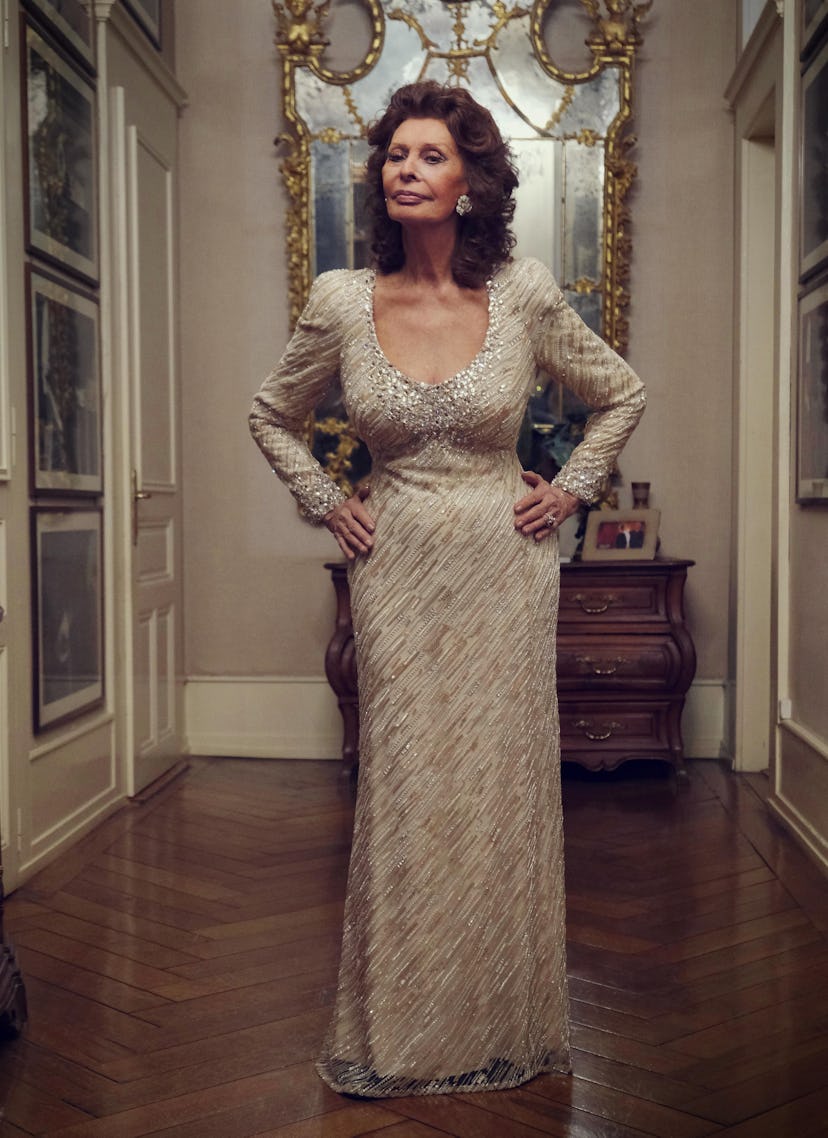Sophia Loren Wants to Go On Forever

In The Life Ahead, your return to the screen after a decade, you play Madame Rosa, a Holocaust survivor and former prostitute who embarks on an unlikely friendship with a young Senegalese immigrant. What drew you to the role?
She’s full of contradictions. She’s dramatic. She’s funny. She’s strong, but she’s soft, and also very poetic sometimes. She reminds me a lot of my mother—maybe, in a way, that’s why I accepted the role. Because my mother was a great artist. She played the piano beautifully, wonderfully. And she was always with us. She took care of us.
The film shows a very different side of Italy, especially from films you’ve starred in in the past.
Well, Italy is not a postcard; it’s a country with all the problems of today. Problems of inequality, problems of discrimination. But this film also wants to show all of the wonderful people in Italy who tackle and try to solve these problems every day, in their own way.
This is the third time you’ve worked with your son, the director Edoardo Ponti. What is it like working with him?
We have such a strong, honest rapport. He always tells me exactly what he thinks. I feel I can really be myself, and in that mode, I feel so free to try things. He knows how to talk to me, and which buttons to push to make me work the way he likes me to work. So that’s why I love working with him—because he sometimes puts in all the effort that I should.
How does it feel to still be working at 86 and for the media to react as if it’s your comeback?
You know, the moment I walk on set, the moment I see the camera and feel the light, I don’t feel 86 anymore. I can still joke about it—I don’t know how old I feel. Certainly not 86. Maybe 46.
You’ve broken many barriers in your career.
I don’t know which barriers I broke. I’ve just always been myself, and I always wanted to live in a way that was right for me, with the way I think and feel. And if it means that living like this I broke barriers, then it’s good. I don’t think of my place in the film industry as a woman. I think of my place as a person, and how I can improve myself as a person in my life—as a mother, as a sister, as a friend. If it makes me also a better woman, then I’m really happy.
What are some of the ways in which you think you’re original or unique?
My Neapolitan side. That’s from where I take all my drama, all my comedy—everything.
Whom do you consider to be original?
Marcello Mastroianni. He was a wonderful friend and a wonderful partner in many films that we did together. It was a very happy time with him. Unfortunately, he died very early.
Is there anyone else you’ve felt that connection with?
Daniel Day-Lewis. He’s a wonderful actor. But I hear that he’s not going to be working anymore, and I’m so sorry for it—I mean, for me. Maybe it’s a feeling that he doesn’t want to work anymore. I appreciate it, but it’s really a pity. He’s one of the greatest.
Well, I feel like, of all people, you could persuade him to come back for a movie or two.
Yeah, but he lives so far away. It’s very rare that I could see him. But maybe he’s going to read your interview and maybe he’s going to start again.
Who was the first person who made you realize you could break the rules?
I was born knowing I could break the rules. In Naples, we break the rules by being born.
What’s the most unoriginal thing that people ask you?
The secret to beauty. But I never tell them. Never. Because it’s what I have inside of me, and it’s just my secret of beauty. Otherwise, we’d all look alike, and I don’t like that.
As for the future, how are you feeling about acting and your career?
I’d like to go on forever, because I like very much to play. I like very much to have these kinds of people around me. And the lights. And my son.
This article was originally published on